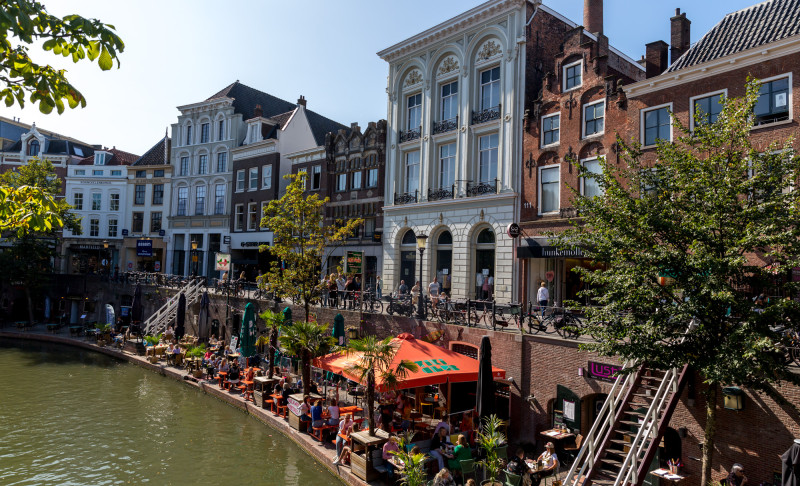Description
How does scientific knowledge differ from other forms of knowledge produced in society? What are the values that drive scientific knowledge production? What are the values that give scientific knowledge legitimacy and authority? This summer school focuses on the diversity of past and present scientific and social knowledge systems and on their underlying values. Epistemic and non-epistemic values often are implicit to our knowledge production practices. They play crucial roles in defining our understandings of what constitutes science in contrast to non-science or pseudoscience, but also in debates across disciplinary boundaries. They also affect our judgement about local and traditional knowledge systems, such as traditional ecological knowledge. In particular epistemic injustice serves as a critical lens for understanding how marginalized voices are excluded from scientific discussions and knowledge production, limiting the diversity of perspectives that shape scientific inquiry and thus possibly hindering scientific progress. By taking a perspective of integrated history and philosophy of science and drawing on positions in feminists epistemology and philosophy of science, this summer school will introduce you to the main philosophical debates on (epistemic and non-epistemic) values in different historical contexts, as well as traditional and current demarcation debates, discussions about epistemic diversity and challenges to integrate forms of local, indigenous, and traditional knowledge with scientific ones. You will develop a critical understanding of the various roles that values play in scientists’ knowledge production as well as the analytical skills and historical sensibility that will enable you to analyze past and present value-driven debates across different knowledge systems.
By taking current problems and challenges such as the climate crisis, conservation issues, and the acknowledgment of indigenous knowledge as case studies, the summer school addresses three general topics:

1. Science and other forms of knowledge production
Recent debates have given more attention to traditional forms of knowledge, such as Mātauranga Māori in New Zealand, and to the relation between science and other epistemic inquiries and understandings of the world. We will discuss how non-epistemic values such as diversity and pluralism as well as approaches of feminist epistemology can be helpful to interact with traditional ecological knowledge and how it can be distinguished from science. This includes tracing patterns of epistemic injustice in and between different forms of knowledge production.
2. Science, pseudoscience, and non-science
Scientific knowledge, scientific institutions and scientists are often at the center of public critique. These critiques range from genuine concerns coming from various societal actors to anti-intellectualism and ‘alternative facts’. In this situation, science (again) faces the necessity to reflect on its values, in order to understand due to which epistemic and non-epistemic values it (should) conduct and communicate research and thus learn how to secure its integrity and separate itself from other kinds of knowledge productions or public opinions. This includes reflecting on the epistemic values defended in science, such as accuracy and generality, in contrast to other knowledge systems that might not share these values. Against this background, past and present approaches to demarcating science from other fruitful and harmful knowledge and belief systems will be critically discussed.
3. Inter- and transdisciplinary
Today, interdisciplinarity is often taken to be a virtue in itself or, in some general way, to allow for better or more complete knowledge about complex issues through scientific pluralism. Philosophers have less often explored the exact values that make interdisciplinarity desirable and possible. In order to avoid that ‘interdisciplinarity’ turns into an empty label, such reflection is strongly needed. We will discuss criteria of epistemic pluralism as well as differences (and similarities) in explanatory standards across disciplinary boundaries. We will also pay attention to problems of epistemic injustice especially in transdisciplinary science and discuss the authority of different ‘knowers’ involved in epistemic practices. Moreover, we will reflect on whether inter- or transdisciplinary is a value in itself in face of global challenges that are orthogonal to traditional disciplinary boundaries and borders of science.

Lecturers
-
Tatjana Buklijas (University of Auckland)
-
David Ludwig (Wageningen University & Research)
-
Raphael Uchôa (University of Coimbra)
-
Federica Russo (Utrecht University)
-
Helmut Pulte (Ruhr University Bochum)
-
Paul Ziche (Utrecht University)
-
David Baneke (Utrecht University)
-
Robert-Jan Wille (Utrecht University)
Target audience
Advanced bachelor, master students of history and philosophy of science, philosophy of science, history of science and related programs, early PhD.
Aim of the course
This course aims to
-
Acquaint students with the major themes in current debates about values in science and forms of knowledge in the field of history and philosophy of science.
-
Enable students to analyze current societal challenges through an integrated HPS approach.
-
Enable students to work in interdisciplinary teams.
Learning goals
-
To participate and lead an academic discussion.
-
To analyze scientific and societal challenges using literature from history and philosophy of science.
-
To develop a critical view on the relation between history, philosophy, science, and society.
Costs
-
Course fee:
€335.00
-
-
Included:
Course fee
-
Housing fee:
€250
-
Housing provider:
A third party
The course fee of €335 includes €250 for housing (reservations are made at Stayok Utrecht; see below).
The course fee for students from Utrecht University is €55.
Application
For this course you are required to upload the following documents when applying:
Tags


